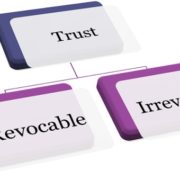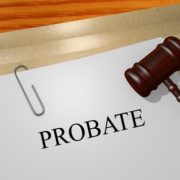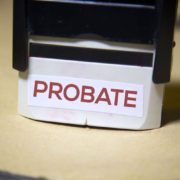Planning for Crisis: Advance Directives
Estate planning is an expansive concept. Fundamentally, estate planning seeks to create a detailed plan for your finances, healthcare, and assets for the reminder of life and after death, to the extent physically possible and within the means of the estate planner. Though it would be nice if a crystal ball existed and told us what to do, how to do it, and when to do it, estate planning must resort to educated guesses and client preference.
An experienced Cleveland estate planning attorney knows there are limitations on his abilities. Some matters can’t be foreseen or preplanned for, such as changes in relevant law or undisclosed heirs or assets. There are also limitations brought on by estate planning clients themselves, such as financial restrictions or outright refusal to take the advice of experienced counsel or professionals. These limits aside, most people looking to plan their estate are concerned with the usual issues affecting us all. Principally, ways to ensure money exists for the rest of life and instructions and preferences regarding necessary medical care. For most, the extent necessary medical care is planned for extends only to telling adult children whether or not they want to be kept alive in the event of a coma or other traumatic injury. Needless to say, this is not good enough and will most likely be forgotten or disregarded. Any Ohio estate planner worth their salt would not let you get away with such half-measures regarding critical medical treatment, and this brings us to advance directives.
What are advance directives and why do I need them?
Simply put, advance directives are legal documents that provide detailed instructions about who should oversee your medical treatment and what your end-of-life or life-sustaining wishes are. Thus, in the event you are unable to speak for yourself, such in the event of coma, traumatic injury, or terminal disease, your family and medical professionals can refer to your advance directives and find out what you want to do.
There are multiple advance directive documents which convey your medical wishes and/or gives authority to another to make medical decisions on your behalf. Which particular document is needed is highly dependent on your medical circumstances, usually focusing on the type of medical treatment contemplated/needed and whether or not you have capacity to make medical decisions yourself. Though there exists many advance directive documents out there, the two most common are healthcare powers of attorney and living wills.
Durable Healthcare Power of Attorney
A healthcare power of attorney allows you to appoint a trusted person to make all healthcare decisions in the event that 1) you become terminally ill and are unable to make your own healthcare decisions or 2) are either temporarily or permanently unable to make medical decisions for yourself. The person you designate with this authority has the power to carry out your wishes and make all other necessary decisions about your medical treatment and other healthcare matters.
Make sure after completing your healthcare power of attorney to at least file it with your primary care physician/provider. The document cannot act to protect you if no one knows about it or knows where it is. Though similar to your financial power of attorney, a healthcare power of attorney only concerns issues of medical treatment. Both work in concert to provide whomever you chose to act in your best interest the legal authority to do so. Talk with your Cleveland estate planning attorney to make sure your powers of attorney are valid and up-to-date.
Living Will
Your living will, sometimes called a healthcare proxy, is almost always paired with your healthcare power of attorney. A living will is a document that conveys your particular instructions to certain medical situations, principally impending death or prolonged terminal conditions, i.e. accepting or declining of life saving medical care. Lesser issues, such blood transfusions or non-life threatening organ or tissue transplants are covered under a healthcare power of attorney. That is why it is important to have both in effect, so all your bases are covered.
Often estate planning clients say that they have communicated their wishes about life sustaining treatment, however, often how it really turns out, friends and family are unaware of an incapacitated person’s medical directives or they may choose to discount or ignore previous conversations, believing that you will pull through against all odds and medical advice. By memorializing your medical directives via a living will, medical staff will consult the document at the appropriate time and carry out your wishes. This takes the stress of critical care decisions off the shoulders of loved ones and removes any opportunity for foul play or misinterpretation. Be sure to consult with your Ohio estate planning attorney to make sure your living will is up-to-date and complies with any recent changes in Ohio law.
Other Types of Advance Directives: DNR’s and Donor Registry Forms
It is worth noting a few additional advance directive documents as well, namely Do Not Resuscitate Orders and Organ/Tissue Donor Registry Enrollment Forms. Both documents respectively seek to further clarify your medical wishes. DNRs are used when a medical emergency occurs and alerts medical personnel that a person does not wish to receive CPR in the even that the heart or breathing stops. Organ/Tissue Donor Registry Enrollment Forms supplement your healthcare power of attorney and living will in that it ensures your wishes concerning organ and tissue donation will be honored.
The general rule is advance directives only come into effect when you are unable to make you own decisions about medical treatment. All advance directive documents allow you to plan ahead by sharing your healthcare instructions with your doctors and family if you become unable, even only temporarily, to make medical decisions yourself. Advance directives help ensure your wishes are followed if you become seriously injured or unconscious. Contact a local estate planning attorney and make sure your have these important documents in place.
About the author: Mike E. Benjamin, Esq.
Mike is a contracted attorney at Baron Law LLC who specializes in civil litigation, estate planning, and probate law. He is a member of the Westshore Bar Association, the Ohio State Bar Association, the Cleveland Metropolitan Bar Association, and the Federal Bar Association for the Northern District of Ohio. He can be reached at mike@baronlawcleveland.com.










